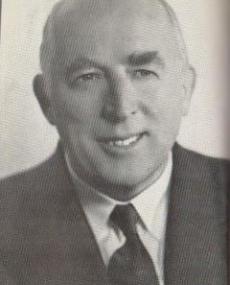
John David Rheinallt Jones was born in 1884 in Carnarvonshire, Wales, the son of a minister, and immigrated to South Africa in 1905, imbued with his family's ideals of liberal reform and social service. Working with C. T. Loram, he helped found the Johannesburg Joint Council in 1921 and thereafter became the chief organiser of other Joint Councils throughout the Union in the 1920s and 1930s. After high school he worked briefly in a bank, then two years after his father 's death in 1903 most of the family emigrated to the Cape Colony. In 1919 he accepted an appointment as secretary of the Witwatersrand Council of Education,an organization seeking to improve educational opportunities for white Englisg-speakers in the Transvaal, where English-medium schools were few.In 1922 he founded the Pathfinders,Boy Scout troops for Africans ;Edith,his wife,created the Wayfarers,a parallel organization for African girls in 1926.
He was the first secretary and director of the Institute of Race Relations at its founding in 1929 and remained its guiding spirit throughout the 1930s and early 1940s. In the mid-1940s he served as administrator of James Donaldson's Bantu Welfare Trust,the largest donor to the African National Congress during the presidency of A.B Xuma. From 1937 to 1942 he was a Native Representative in the Senate,but lost the seat to Hyman Basner in 1942.
Energetic and prolific as a writer, researcher, and editor, he presented evidence before nearly every government commission dealing with African affairs between 1920 and 1950.He represented African voters from the Transvaal and Orange Free State in the Senate from 1937 until he was defeated by the more radical Hyman Basner in 1942. He died in 1953. Edgar H. Brookes wrote a booklet for the South African Institute of Race Relations in 1953: R. J.; In Appreciation of the Life of John David Rheinallt Jones and His Work for the Betterment of Race Relations in Southern Africa.